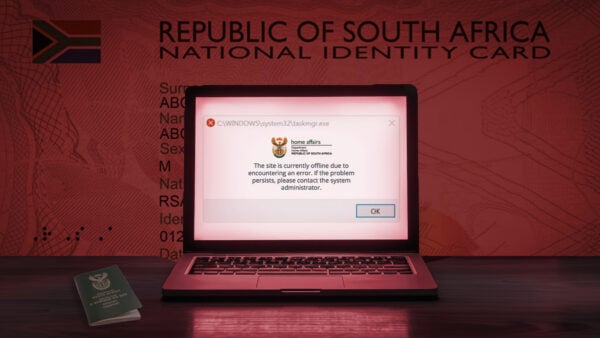Crypto technology could change how ownership and investments work in South Africa

Asset tokenisation is emerging as a significant shift in how ownership and investment in assets are conceptualised and executed, according to ENS Technology, Media and Telecommunications executive Ridwaan Boda.
“Tokenisation offers a means for businesses and individuals to unlock liquidity from otherwise illiquid assets like real estate, private equity, or even intellectual property,” Boda says.
Boda said it is also unburdened by the traditional intermediation of banks, exchanges, or regulatory-heavy instruments.
“While still in its early stages, it is poised to become central to how real-world assets are going to be converted into digital tokens using blockchain technology,” Boda said. “Tokens that can be securely stored, transferred, and traded online.”
Boda believes the practical implications of asset tokenisation are significant and compelling.
He explained that asset tokenisation is the process of representing ownership rights to an asset in the form of a digital token recorded on a blockchain.
“This allows for the fractionalisation of high-value assets, enabling a broader pool of investors to participate and providing issuers with a new channel for capital formation,” said Boda.
“For example: Consider a property valued at R10 million. The owner may choose to issue 10,000 tokens, each representing 0.01% of the property.”
These tokens can then be offered to investors, who can trade them or hold them to earn a proportional share of rental income.
“This model is not limited to real estate and can extend to virtually any type of asset, including equity in a private business and revenue streams from future intellectual property, such as music royalties,” Boda said.
“Asset-backed debt instruments, shares in collectibles or luxury goods, and even infrastructure, energy, and ESG-linked assets could also be tokenised.”
Boda said this offers several benefits, including access to a broader, often global investor base and allowing assets traditionally considered illiquid to become tradeable.
Fractionalisation of large-scale assets also make them more accessible, which Boda said improves inclusivity and diversification.
“In regions with underdeveloped financial infrastructure, these benefits are particularly transformative,” said Boda.
Tokenisation legal and regulatory considerations
Although tokenisation has tremendous promise, Boda said it requires careful legal structuring.
He said key considerations include whether tokenising an asset constitutes issuing a security under the relevant jurisdiction’s laws.
“If it does this may trigger extensive disclosure, legal compliance obligations and heightened regulatory oversight,” he warned.
There may also be licensing and regulatory requirements.
“Depending on the nature of the token and the structure of the offering, the issuer may need to register as a financial services provider, and obtain other specific licenses,” said Boda.
Another consideration is the smart contract that governs the tokens. These must be reviewed to ensure they reflect the intended outcome and do not contain security flaws.
“Smart contracts, which are, in essence, self-executing code that facilitates token transactions, must reflect the legal rights and obligations agreed to by the parties,” he said.
“This means tech-savvy lawyers must ensure that the logic encoded in the contract accurately represents the legal agreement and that fail-safes are included for dispute resolution and error correction.”
Boda said few law firms are equipped with the skills and expertise required to do this.
“A flaw in code, such as a smart contract miscalculating and distributing incorrectly, could potentially lead to investor disputes and further regulatory complications,” he warned.
This includes ensuring investor protection mechanisms are properly codified, such as voting, dividends, redemption, and restrictions on transfer.
Another aspect is ensuring cross-border compliance, given that tokenised assets can be traded globally.
“This raises complex issues around compliance with multiple regulatory regimes,” said Boda.
“Legal structuring must address not only where the offering is launched but also where investors reside, which can bring a myriad of securities, tax, anti-money laundering and data protection laws into play.”
Issuers and investors will also have to consider the tax implications, as tokenisation may trigger various tax events, such as capital gains, income, or VAT, depending on the nature of the asset and jurisdiction.
Intellectual property rights are another consideration.
“In cases where tokens represent rights to digital content or other IP, it’s important to clearly define the scope of those rights, whether they include reproduction, resale, licensing, or personal use, and ensure that copyright and licensing laws are adhered to across jurisdictions.”
An important issue to consider is insolvency — what happens when an asset tokenisation issuer becomes insolvent?
“Questions may arise about how this will be dealt with and whether investors may have any claims to the underlying asset,” Boda said.
Tokenisation already here
Boda said that people are already exploring tokenisation across a diverse set of applications. For example:
- Real estate developers creating fractional investment opportunities. In the UAE, for example, the Dubai Land Department has recently launch a pilot real estate tokenisation project.
- Tech startups are looking to raise capital through revenue-sharing tokens.
- Asset managers are using tokenised debt to expand into underserved markets.
- Sports organisations are tokenising future sponsorship rights or merchandise earnings.
South Africa also already has a tokenised exchange, Mesh. trade, offering several products for a variety of clients.
“Asset tokenisation represents a convergence of law, finance, and technology,” said Boda.
“While it introduces novel risks and regulatory challenges, it also unlocks entirely new ways to engage with value, ownership, and investment.”
































